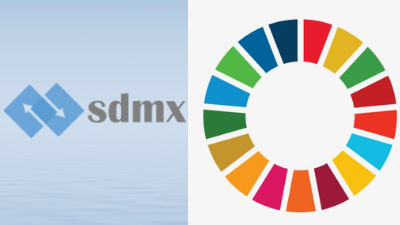Regional workshop on the implementation of the SDMX standard for dissemination and exchange of SDG indicators
Work area(s)
Teaser
Organized jointly by ECLAC and the Caribbean Community (CARICOM) Secretariat Regional Statistics with the collaboration of the United Nations Statistics Division (UNSD).
Event information

Date
3 - 05 Dec 2019, 06:00 - 14:00Event type
The Economic Commission for Latin America and the Caribbean (ECLAC) and the Regional Secretariat for Statistics of the Caribbean Community (CARICOM), with the collaboration of the United Nations Statistics Division (UNDEN) organize this regional workshop to provide technical training in statistics and information technology specialists from the National Statistical Office of 7 countries in the Caribbean region in the implementation of the SDMX standard and software tools for the management, integration and dissemination of national data on SDG indicators.
» REGIONAL WORKSHOP PARTICIPANTS
Background
SDMX data and metadata exchange
The Statistical Data and Metadata Exchange (SDMX) standard was endorsed by the United Nations Statistical Commission in 2008 as a preferred standard for data exchange. It has been successfully used for data exchange and dissemination in areas such as Macro-Economic Statistics, International Merchandise Trade, and others including MDG indicators.
To facilitate the implementation of the SDG Indicator Framework, the Inter-Agency and Expert Group on SDG Indicators (IAEG-SDG), established the SDMX-SDGs Working Group, with the mandate to develop standards for the exchange of SDG indicators and metadata. Following the official release of the SDG Data Structure Definition (DSD) by the working group in June 2019, and statistical organizations are now moving ahead with the implementation of the standard for the collection and dissemination of SDG data and metadata.
Federated Information System for the SDGs
At its 49th session in March 2018, the Statistical Commission welcomed the efforts to establish a federated system of national and global data hubs for the SDGs to facilitate integration of different data sources, promote data interoperability, foster collaboration among partners from different stakeholder groups, including the geospatial community and other data providers, and improve data flows and global reporting of the SDGs. Furthermore, at its 50th session in March 2019, the Statistical Commission stressed the need to mobilize resources and provide the necessary technical support to all countries wishing to join the Federated System (Decision 50/102(g), E/2019/24).
The primary purpose of the Federated Information Systems for the SDGs (FIS4SDGs) initiative is to facilitate the exchange of data, information and knowledge to achieve the 2030 Agenda by unlocking new and traditional sources of SDG data, including geospatial information, allowing data users greater freedom to select the information products and services that best meet their needs, providing an open, participatory infrastructure and governance framework for value-creating interactions between multiple producers and consumers of data.
Workshop Objectives
- Review and discuss requirements for the development of common data repositories across national statistical systems and the use of innovative software and tools for data and metadata sharing and exchange in support of the reporting, dissemination, and utilization of SDG Indicators. The participants will be invited to share the current status of and plans for the development of their national SDG data and metadata repositories.
- Address and discuss how to mainstream SDG data and metadata storage and exchange through the adaption of Statistical Data and Metadata Exchange (SDMX) standard. It is introduce a selected set of tools available to support data and metadata exchange using SDMX standard and provide guidance on how these can be used to facilitate the exchange of SDG indicators. The Workshop also includes hands-on trainings on data modelling in SDMX and use of available SDMX tools.
- Strengthen the capacity of participating countries to integrate and disseminate SDG statistical and geospatial data for monitoring and reporting at global, national, and as sub-national levels, by building a basic set of skills and knowledge to share of SDG data following open standards and principles for data interoperability through the FIS4SDGs network of national and international data hubs.
Target audience
Statistical and information technology specialists from the National Statistical Office of 7 countries in the Caribbean region.
Related content

Taller regional sobre la implementación del estándar SDMX para la difusión e intercambio de indicadores ODS
Organizado conjuntamente entre la CEPAL y la Oficina Nacional de Estadística de República Dominicana, con la colaboración de la División de Estadística de Naciones Unidas.
Attachment(s)
Organizing institution
Economic Commission for Latin America and the Caribbean (ECLAC)
- https://www.cepal.org
- 56 222100000
United Nations Statistics Division (UNSD)
- https://unstats.un.org/home/
- Fax +1 (212) 963-9851